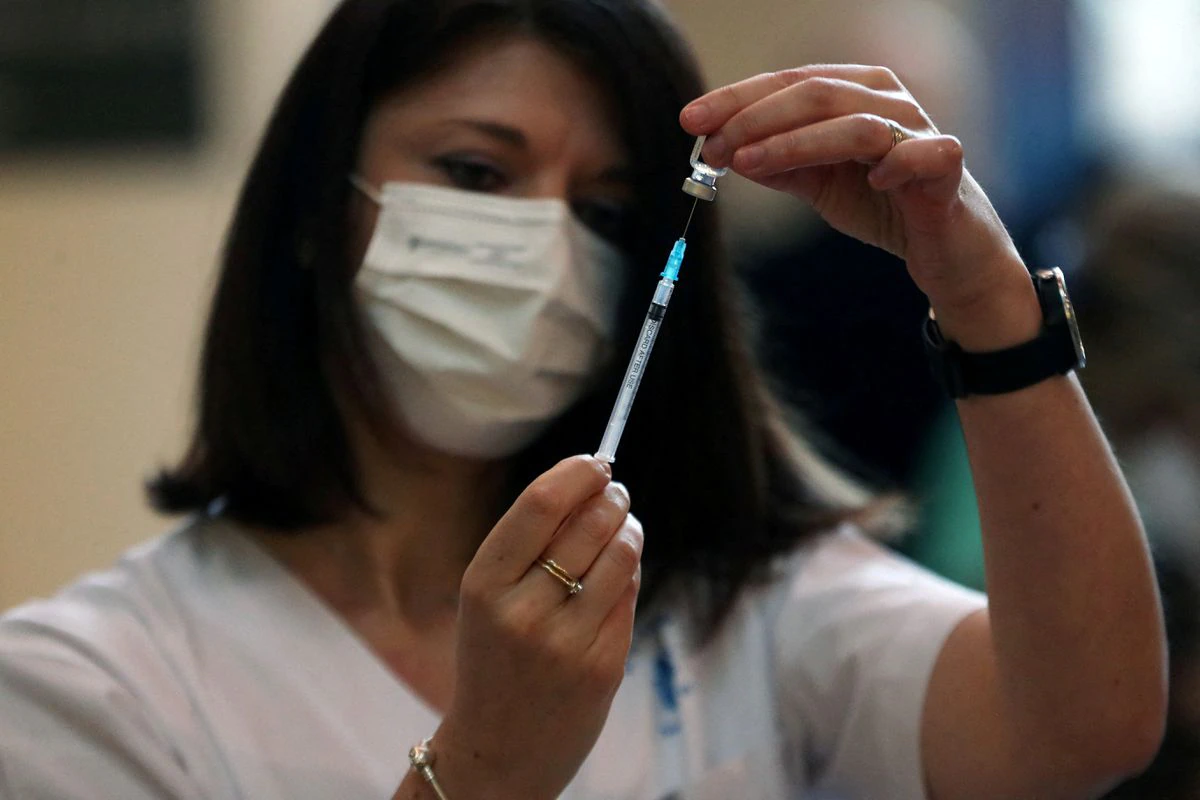Israel sticks with 4th vaccine shot, sees Omicron waning in a week
Tel Aviv (Reuters) – Israel will continue to offer a fourth COVID-19 vaccine shot despite preliminary findings that it is not enough to prevent Omicron infections, a senior health official said on Tuesday, predicting contagions stoked by the variant will wane in a week.
The fastest country to roll out vaccinations a year ago, Israel last month started offering a fourth shot – also known as a second booster – to its most vulnerable and high-risk groups.
A preliminary study published by an Israeli hospital on Monday found that the fourth shot increases antibodies to even higher levels than the third but “probably” not enough to fend off the highly transmissible Omicron.
Health Ministry director-general Nachman Ash described those findings as “unsurprising, to a degree” as Omicron infections had been logged in some people after they received fourth doses.
“But we assess that protection from serious morbidity, especially for the elderly population and at-risk population, is still afforded by this vaccine (dose), and therefore I call on people to keep coming to get vaccinated,” he told Army Radio.
As elsewhere, Israel has seen COVID-19 cases spiral due to Omicron. But it has logged no deaths from the variant, and Ash said there had been no increase in the number of COVID-19 patients on ECMO machines – a gauge of the most critical cases.
“In another week we will begin seeing a drop in the numbers, but we still have two or three difficult weeks ahead,” he said.
Hoping to reduce strain on the economy, Israel on Monday cut the mandatory quarantine period for COVID-19 carriers to five days. read more To husband PCRs and reduce queuing at public testing sites, it has encouraged more use of home antigen kits.
The Health Ministry has been issuing regular updates on COVID-19 in Israel but these have been disrupted since Sunday due to “major overloads on our computer systems,” Ash said.


